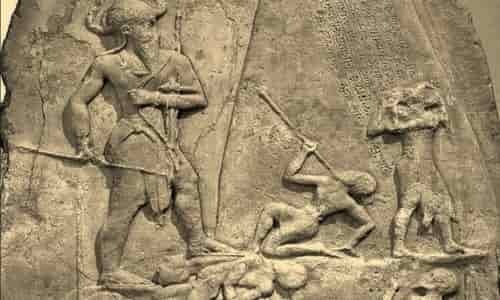Reappearance of the Nephilim


If the Nephilim of Genesis 6:4 died in the flood, how did they come back in Numbers 13:33?
Genesis 6:4
The Nephilim were on the earth in those days, and also afterward, when the sons of God came in to the daughters of mankind, and they bore children to them. Those were the mighty men who were of old, men of renown.
Numbers 13:33
“We also saw the Nephilim there (the sons of Anak are part of the Nephilim); and we were like grasshoppers in our own sight, and so we were in their sight.”
To make sure everyone is on the same page, Nephilim is a transliterated Hebrew term that carries the idea of mighty men, elite warriors, heroes, or famous men. Genesis 6:4 above tells us that the sons of God had relations with human women. Due to that, the women had children. Those children are referred to as the Nephilim. There is a lot of disagreement over who the “sons of God” are. Some believe they are fallen angels. Others believe they are just other humans. Regardless of who they are, the question above is about how they reappear in Numbers 13, after the flood. If the flood killed everyone outside the ark, how are the Nephilim back after the flood?
The flood definitely killed all of the Nephilim. The fact that they are mentioned again well after the flood in Numbers 13 is certainly confusing. There are a few different options that could be plausible:
- A false report from the spies
- Nephilim is just a general term referring to heroic warriors
- They came about the same way as in Genesis 6
(There are other opinions that I do not really consider plausible. We will not spend time on those today).
We see no indication in between Genesis 6 and Numbers 13 that the old Nephilim of Genesis 6 were reproduced at any point. If they were, why would the “sons of God” have ceased their practice? In any case, one view I might be able to lean toward is that Numbers 13:33 is merely indicating large, strong, intimidating opponents, not actually the Nephilim of the past found in Genesis 6. That is indicated by the fact that no one in the conversation raised an eyebrow. If the 10 doubting spies were talking about the actual Nephilim from Genesis 6, someone else in the conversation would have made a big deal out of it. The fact that no one did could imply that the spies were not literally speaking of the Nephilim of Noah’s day.
However, the view that might seem most reasonable to me is option 1. Moses sent out spies to “scope out” the land of Canaan (Numbers 13:17). Joshua and Caleb said they could conquer it. The other 10 disagreed. They disagreed with Joshua and Caleb to the point that they gave a “bad report.” If we compare with Deuteronomy 1, sending out spies originated with fear from the people. That would explain the extra effort the unbelieving spies made to lie. Reading through the passage, it certainly looks like they exaggerated and mixed in some lies with their report. Their reference to the Nephilim might likely be an excuse for their fear, which led to their disobedience.
That is actually not surprising, however. Unbelief can make us perceive the surrounding world differently, or cause us to change the truth. It’s my prayer that we do not fall into that. Let’s ask the Lord to guard our heart against such things.